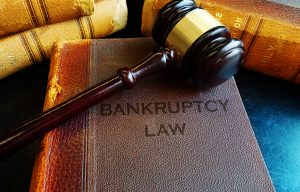The last thing a business wants is the unexpected surprise of having to pay back money it has received from a customer for goods or services. Although charge-backs and payment disputes may be more common in today’s digital world, a startup or business will likely be caught off guard when it is served with a “preference action” filed by a bankruptcy trustee or bankrupt customer.
The Bankruptcy Code permits the trustee to avoid and recover from creditors for the benefit of all creditors of the debtor’s bankruptcy estate certain pre-petition transfers made within 90 days (and sometimes longer) of the debtor’s bankruptcy filing that would otherwise benefit one creditor at the expense of others. Such transfers are referred to as “preferences.” Simply put, a preference is where a trustee can recapture certain payments made by the debtor prior to its bankruptcy filing.
The avoidance and recovery of a preference payment helps to ensure equal distribution among the debtor’s creditors and is intended to discourage aggressive collection tactics by creditors that force the debtor into bankruptcy. An adversary proceeding (a lawsuit filed in the debtor’s bankruptcy) is required to avoid and recover a preference, but a preference action is often preceded by a demand letter from the trustee setting forth the trustee’s claims and demanding immediate repayment of the preference payment.
Elements of a Preference Action
Preferences are governed by Section 547 of the Bankruptcy Code. Under Section 547, a preference is defined as:
- A transfer of the debtor’s property;
- To or for a creditor’s benefit;
- On account of an “antecedent” (pre-existing) debt;
- Within 90 days of the bankruptcy filing (or longer in some cases, including when a transfer to an “insider” of the debtor);
- While the debtor was insolvent (meaning that the debtor’s assets were less than its liabilities);
- That “prefers” the creditor, meaning that the transfer enabled the creditor to receive more than it would have had received in a hypothetical chapter 7 case had the transfer not occurred.
Preference Claim Procedures
An adversary proceeding is required to avoid and recover a preference, although the trustee may send a pre-lawsuit demand letter to the creditor (in this instance, the business). Such demand letter will set forth the grounds for the trustee’s preference claim and contain a demand for immediate repayment. Numerous defenses do exist to a preference claim, and it is thus possible that the demand letter sets forth a reduced amount that the trustee will quickly settle for in order to avoid a costly adversary proceeding.
Absent a settlement, the trustee will likely attempt to avoid and recover the amount of the alleged preference payment by filing an adversary proceeding (lawsuit) in the debtor’s bankruptcy case. The trustee’s preference action will proceed similar to any other lawsuit with the creditor being the defendant. Aside from the trustee needing to establish all elements of a preference claim under Bankruptcy Code 547, a number of affirmative defenses are available to a defendant creditor, including:
- The “ordinary course of business” defense;
- The “contemporaneous exchange for new value” defense; and,
- The “subsequent advance new value” defense.
Affirmative defenses to preference actions tend to be technical in nature and, as affirmative defenses, must be affirmatively pled as defenses or they are waived. The creditor has the ultimate burden of proof on the issue. Seeking experienced counsel is invaluable in successfully defeating preference claims.
Contact your Silicon Valley Corporation Business Lawyer Today
If you are a business that has been issued a demand letter or served a lawsuit in a preference action, please contact our experienced bankruptcy lawyers at Structure Law Group, LLP at (408) 441-7500 or email us today. Understanding the viability of any preference action brought against you is essential in defeating any and all claims. Our experienced Silicon Valley business attorneys can assist with any questions and concerns.
 San Jose Business Lawyers Blog
San Jose Business Lawyers Blog


